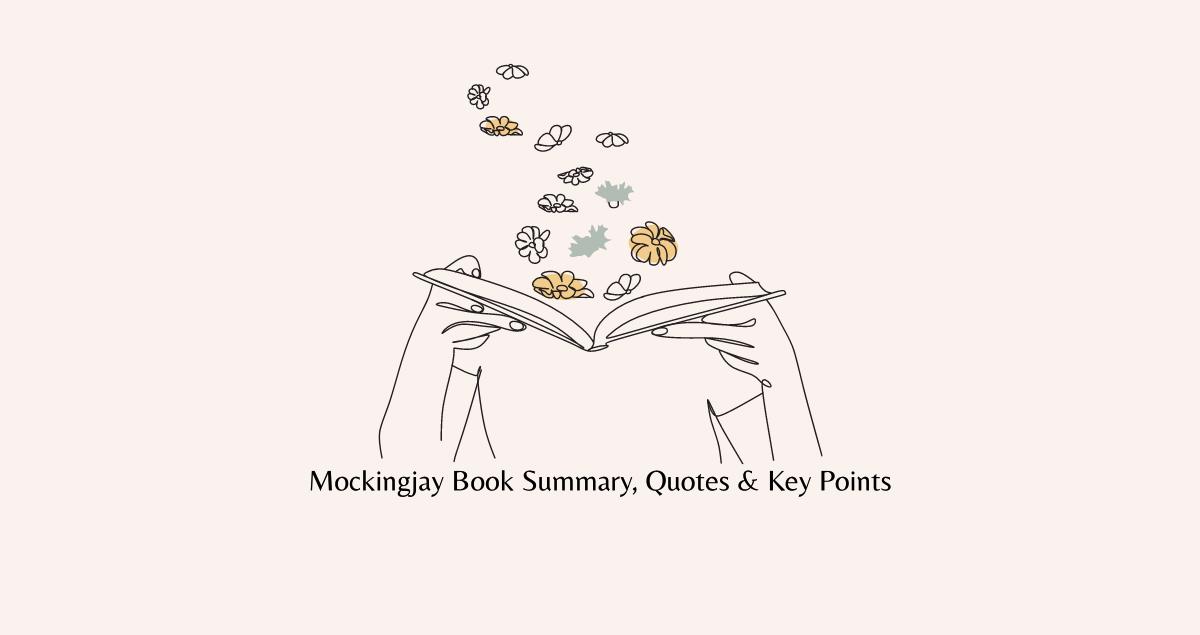Mockingjay is the third and final book in the Hunger Games trilogy by Suzanne Collins. The novel follows protagonist Katniss Everdeen as she becomes the symbol of a rebellion against the Capitol and President Snow.
Table of Content
Mockingjay Book Summary
Overview
The novel begins with Katniss being rescued from the Quarter Quell arena by the rebels of District 13. She is persuaded to become the "Mockingjay," the symbol of the rebellion, and is tasked with filming propaganda videos to inspire the districts to rise up against the Capitol. As the war between the Capitol and the rebels intensifies, Katniss becomes increasingly traumatized and conflicted about her role in the rebellion.
Plot Summary
The novel explores the devastating impact of war on both individuals and society as a whole. Characters are traumatized by violence and loss, and the rebellion's tactics often blur the line between heroism and terrorism.
Themes
Some of the key themes in Mockingjay include war and its effects on individuals and society, the power of propaganda and media manipulation, the importance of personal agency and choice, the corrupting influence of power and authority, and the nature of sacrifice and selflessness.
Characters
Some of the key characters in Mockingjay include Katniss Everdeen, the protagonist and Mockingjay, Peeta Mellark, Katniss's love interest and fellow Hunger Games victor, Gale Hawthorne, Katniss's childhood friend and fellow rebel fighter, President Snow, the tyrannical ruler of the Capitol, and President Coin, the leader of District 13 and the rebellion.
Mockingjay Book Review
Overview
Mockingjay is a powerful conclusion to the Hunger Games trilogy that explores complex themes and characters. While some readers may find the book's darker tone and graphic violence difficult to stomach, others will appreciate its unflinching portrayal of the horrors of war and the human cost of rebellion.
Pros
The book has compelling and complex characters, thought-provoking exploration of themes, and a powerful and emotional conclusion.
Cons
The book has graphic violence and disturbing content, somewhat slow pacing at times, and some plot points feel rushed or underdeveloped.
Mockingjay Quotes
"Fire is catching! And if we burn, you burn with us!"
"I am not a piece in their games. I am not a pawn. I am a Mockingjay. I am Katniss Everdeen."
Mockingjay Key Points
War and its effects on individuals and society
The novel explores the devastating impact of war on both individuals and society as a whole. Characters are traumatized by violence and loss, and the rebellion's tactics often blur the line between heroism and terrorism.
The power of propaganda and media manipulation
Mockingjay highlights the ways in which propaganda and media manipulation can be used to control and manipulate people. The Capitol uses propaganda to maintain its power, while the rebels use it to inspire and motivate their followers.
The importance of personal agency and choice
Katniss struggles throughout the novel with the weight of her role as the Mockingjay and the expectations placed upon her by others. Ultimately, she must choose her own path and make her own decisions, even if they go against the wishes of those around her.
The corrupting influence of power and authority
The novel explores the corrupting influence of power and authority, as both the Capitol and the rebels become increasingly ruthless and willing to sacrifice innocent lives in pursuit of their goals.
The nature of sacrifice and selflessness
Mockingjay also explores the nature of sacrifice and selflessness, as characters make difficult choices and put themselves in harm's way for the greater good.
FAQs for Mockingjay
1. What is the significance of the mockingjay symbol?
2. How does Katniss's relationship with Peeta change over the course of the novel?
3. What role does District 13 play in the rebellion?
4. How does the Capitol use propaganda to maintain its power?
5. What is the significance of the "Nightlock" berries?
6. How does President Coin's leadership style differ from President Snow's?
7. What is the impact of the war on the citizens of the Capitol?
8. How does Katniss's PTSD affect her throughout the novel?
9. What is the significance of the "Hanging Tree" song?
10. Does the novel offer a hopeful or pessimistic view of human nature?
Conclusion
Mockingjay is a powerful and thought-provoking conclusion to the Hunger Games trilogy that explores complex themes and characters. While some readers may find the book's darker tone and graphic violence difficult to stomach, others will appreciate its unflinching portrayal of the horrors of war and the human cost of rebellion.

